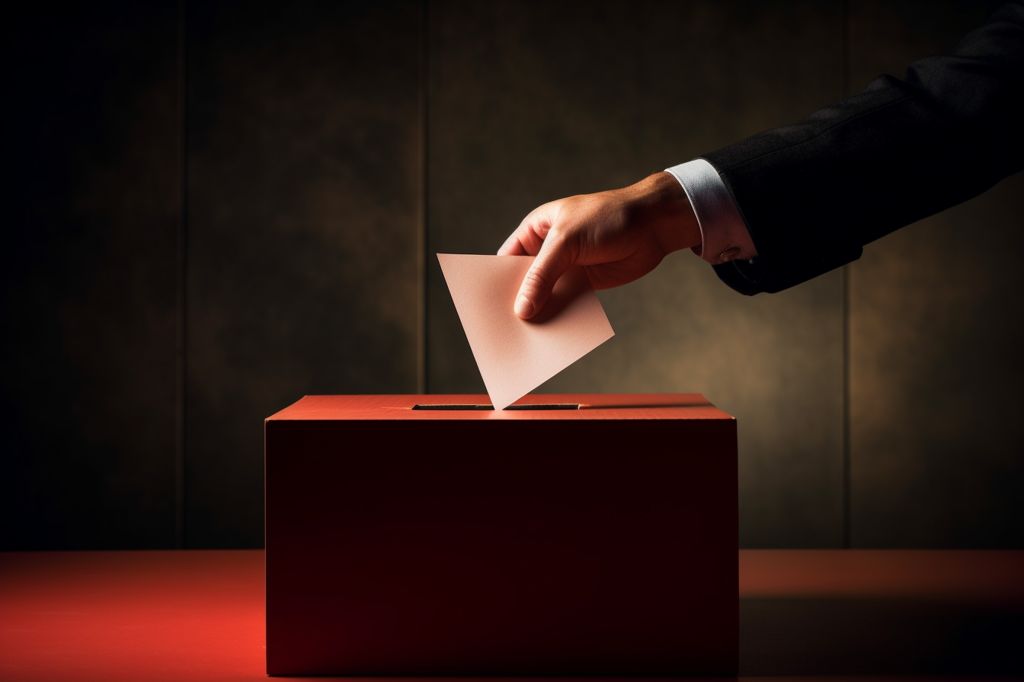The results highlight the importance of voter turnout and political adaptability, and provide valuable insights into the priorities of South African citizens at a local level.
Surprising Shifts in the Political Landscape
Recent events in South Africa’s political landscape have revealed interesting developments, especially during the municipal by-elections on 27 September 2023. The elections featured intense rivalry between the nation’s prominent political parties such as the African National Congress (ANC), Inkatha Freedom Party (IFP), and the Economic Freedom Fighters (EFF) across KwaZulu-Natal, Limpopo, and North West provinces.
The importance of these local elections cannot be overstated, as they can influence the political dynamics at the municipal level. The performance of each party in these elections provides insight into their effectiveness in addressing local issues. The by-election results showed interesting changes in the political landscape, with the ANC retaining two seats, while the IFP and EFF each secured a win in their respective regions.
A notable accomplishment in these by-elections was the victory of Sibusiso Ndunakazi, the new IFP councillor from Ward 13 uMhlathuze Municipality in KwaZulu-Natal. Ndunakazi triumphed in a seat previously held by the ANC in the 2021 Municipal Elections, receiving 53.38% of the total votes cast, a decrease from the 63.32% during the last elections. Importantly, voter turnout in this constituency reached an impressive 64.85%, highlighting the electorate’s commitment to shaping their local political scene.
The Resilience of the ANC
Despite facing challenges, the ANC succeeded in holding on to two seats it had previously secured in the 2021 Municipal Elections. Mokgadi Jennet Molokomme emerged as the new ANC councillor in Ward 11 Blouberg Municipality, Limpopo, earning 64.84% of the total votes cast. However, this figure is lower than the 84.51% the party received during the 2021 Municipal Elections. Voter turnout for this electoral contest reached 49.24%.
Similarly, Keaobaka Remembrance Sefike maintained the ANC’s seat in Ward 03 Madibeng Municipality, North West. Sefike’s victory, with 85.86% of the total votes cast, was an improvement from the 62.78% achieved during the 2021 Municipal Elections. Voter turnout for this election reached 37.95%, lower than in other electoral contests, but it did not impede the ANC’s success.
The EFF’s Emergence in the North West
Another captivating development was the EFF’s victory in Ward 3 in Maquassi Hills Municipality, North West. The new EFF councillor, Lehlohonolo Metoa, managed to win a seat that the ANC previously held after the 2021 Municipal Elections. Metoa secured 46.89% of the total votes cast, compared to the ANC’s 64.17% during the prior elections. This election witnessed a voter turnout of 54.42%.
The Importance of Voter Turnout and Political Adaptability
These by-elections have showcased the shifting support for various political parties in South Africa. The results highlight a dynamic landscape where parties can gain and lose ground according to their ability to address local concerns and connect with citizens. It is fascinating to observe how these local political changes can create ripple effects throughout the broader political environment.
Moreover, varying voter turnout percentages across constituencies can significantly impact electoral outcomes. As evident from the recent by-elections, high voter turnout can lead to unexpected victories, such as the IFP’s triumph in KwaZulu-Natal. Conversely, lower turnout rates, as observed in the North West, can still result in a party’s success, such as the ANC’s retention of its seat in Madibeng Municipality.
By-elections also serve as an essential platform for political parties to assess their electoral strategies and measure public sentiment. The 2023 municipal by-elections have undoubtedly provided valuable insights into the political priorities of South African citizens on a local level. As the nation progresses, it will be intriguing to see how these electoral outcomes shape the prospects of the competing parties and inform their future strategies for local and national elections.
Concluding Thoughts on South Africa’s Evolving Political Landscape
In conclusion, South Africa’s municipal by-elections provided a captivating snapshot of the nation’s evolving political landscape. The electoral contests in KwaZulu-Natal, Limpopo, and North West provinces demonstrated the significance of local politics in shaping broader political dynamics, as well as the resilience and adaptability of the country’s major political parties. As the dust settles on these by-elections, the future of South Africa’s political arena remains an exciting prospect to watch unfold.
1. What were the recent events in South Africa’s political landscape?
Recent events in South Africa’s political landscape include municipal by-elections on 27 September 2023, featuring intense rivalry between the nation’s prominent political parties such as the African National Congress (ANC), Inkatha Freedom Party (IFP), and the Economic Freedom Fighters (EFF) across KwaZulu-Natal, Limpopo, and North West provinces.
2. Why are local elections important?
Local elections are important because they can influence the political dynamics at the municipal level. The performance of each party in these elections provides insight into their effectiveness in addressing local issues.
3. What were the results of South Africa’s municipal by-elections?
The by-election results showed interesting changes in the political landscape, with the ANC retaining two seats, while the IFP and EFF each secured a win in their respective regions.
4. Who was the new IFP councillor from Ward 13 uMhlathuze Municipality in KwaZulu-Natal?
Sibusiso Ndunakazi was the new IFP councillor from Ward 13 uMhlathuze Municipality in KwaZulu-Natal.
5. What was the voter turnout for the by-elections?
Voter turnout for the by-elections varied across constituencies, with some reaching an impressive 64.85% and others as low as 37.95%.
6. How did the ANC perform in the by-elections?
The ANC succeeded in holding on to two seats it had previously secured in the 2021 Municipal Elections. However, the figures were lower than the previous elections, and voter turnout varied between constituencies.
7. Who was the new EFF councillor from Ward 3 in Maquassi Hills Municipality, North West?
Lehlohonolo Metoa was the new EFF councillor from Ward 3 in Maquassi Hills Municipality, North West.
8. What insights did the by-elections provide into the political priorities of South African citizens?
The 2023 municipal by-elections have provided valuable insights into the political priorities of South African citizens on a local level. The results highlight a dynamic landscape where parties can gain and lose ground according to their ability to address local concerns and connect with citizens.








